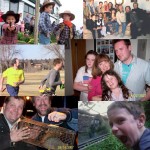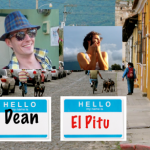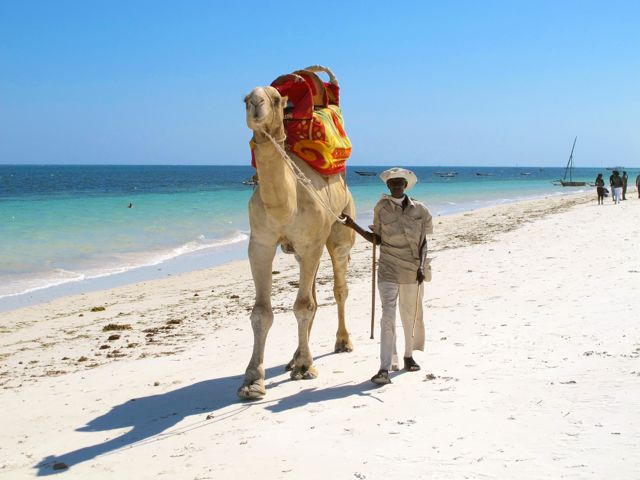
Mombasa is blue surf and white sands where a few dollars will allow one of the many visiting tourists a camel ride on the beach. Ashleigh Bell originally came to Kenya as a tourist, during a break in Hong Kong where she was studying international law. Having spent time volunteering at orphanages in Asia, she signed up for to volunteer at an orphanage called Lady of Mercy Home. What she saw there changed everything.
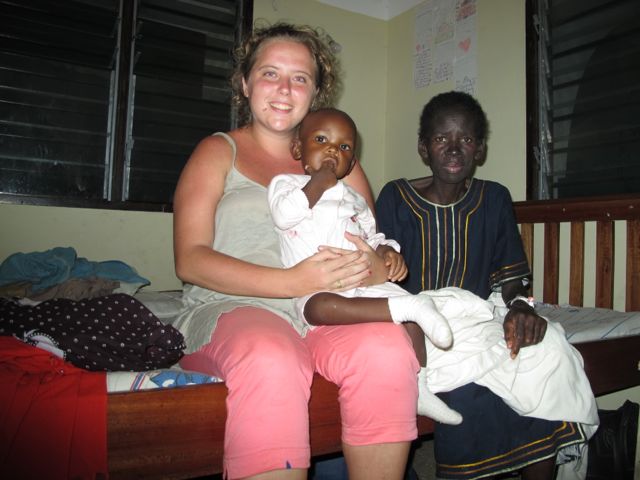
If you saw Ashleigh in the university in England where she studies law, she would look like any other student—backpack stuffed with books draped over one shoulder, a hurried gait between classes and foundation covering a few pimples. If you looked closer, you would see that she was sunburned. If you had a class with her, you would wonder why she rarely attended.
Ashleigh only returns to her school in England around exam time. To come, she leaves a life in Mombasa, Kenya where she cares for twenty-six kids a the children’s home she found as a 21-year-old law student.
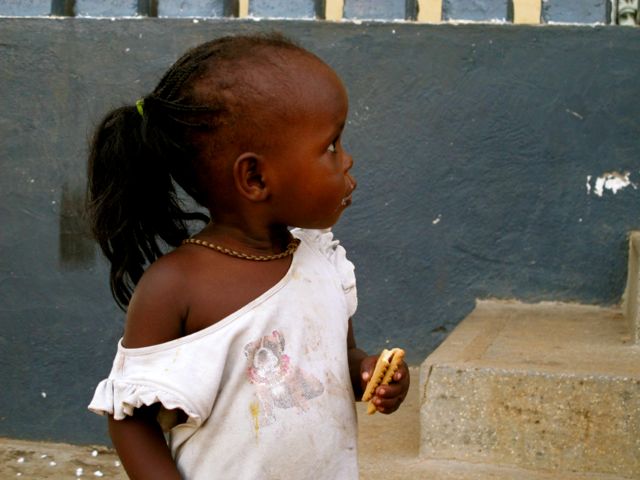
When Ashleigh volunteered at Lady of Mercy Home, she found 106 children crammed into a five-bedroom house—nine kids to a bed without mosquito nets. Less than a quarter of the kids attended school and all of them repeated the same grade year after year since the center did not pay for the exams required in Kenya to advance. Staff members beat the kids. Meals were not dependable and everyone went hungry. A young boy confided Ashleigh, telling her of how he’d been sodomized in the center. Another child told her Ashleigh that the centers’ director was prostituting girls as young as six to men in the village.
As a law student, Ashleigh looked at what legal recourse could be taken, but was met with bureaucracy, impunity and threats. Kenya’s impunity level is high and corruption runs rampant in all levels of the government. Someone from The Children’s Department informed the director of Lady of Mercy Home of the action Ashleigh had taken and she attempted to have her deported from the country by telling the police she was a drug dealer.
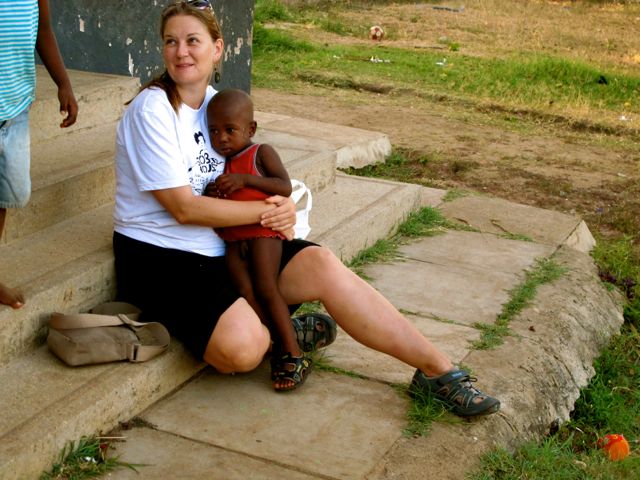
She met the director of the Children’s Department and he told Ashleigh that there was nothing that could be done. He shook his head and said, “There’s nothing you can do, unless you open your own children’s home where kids can go instead.” He meant this to be rhetorical. No part of him thought that the young, energetic tourist in seated before him would decide to do just that.
If you’d asked her a few years ago, she would not have imagined the dual nature of the life she has now. When I asked how she is able to be both a student and mother to twenty-six kids, she giggled and blushed, “These are my kids! My grades don’t suffer. I can do both!”
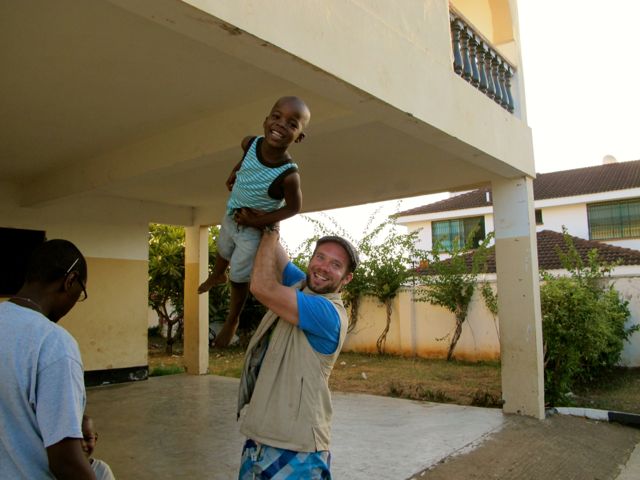
When Ashleigh returned to Hong Kong, she began to assemble a support network. Even as an international student far from home, she was able to enlist the help of professors and friends to put together bake sales, pajama days, give lectures in Hong Kong, organize boat trips with BBQs, hold auctions, and collect enough donations to start a center.
Hearing her talk about the children’s home, what had to be done and how she did it, one thing is clear. She never second guessed herself, never wondered if this was perhaps a bit much for a twenty-one year old law student to be taking on. With the blessing of the Children’s department, Ashleigh opened Luna Home in Mombasa, Kenya in 2012.
During the first year of operation, Ashleigh stayed in school and split her time between England and Kenya. She worked out arrangements with her professors to submit her essays over the Internet and to fly back to England during the weeks of testing. Her grades did not suffer and thankfully her professors were accommodating to her unique set of circumstances.

Away from the classroom, Ashleigh is just a mother with a tight budget and small support staff trying to better the lives abandoned children. Some of the kids lost their parents to AIDs. Others come from abuse. One little boy’s mother used to inject him with her heroin to keep him from crying of hunger.
In Luna Home, everyone is part of the same large family. When Ashleigh walks through the front door the kids flock to her like a parent back from work. I ask if she every plans to return permanently to England and she looks at me like I’m crazy, “They’re my kids. I can’t leave them. Even if I wanted to I couldn’t, logistically get them back to England.”
Ashleigh is an only child and her mother worries about her, but is supportive and has sent a box of Ashleigh’s hand-me-downs for the kids to wear.
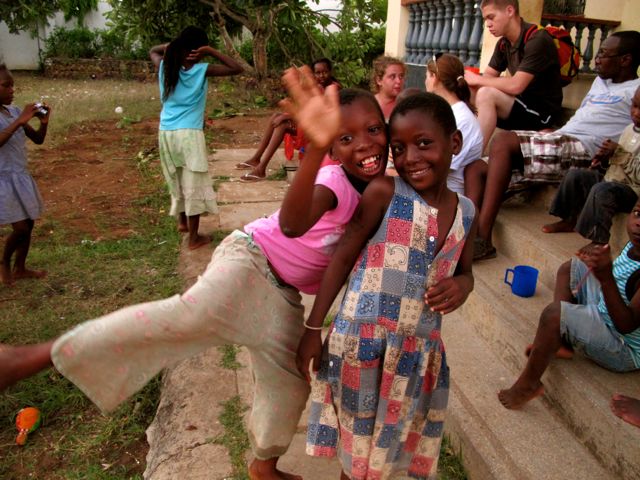
At the time of my visit, Luna Home operated month to month on a razor-thin budget. “We have to do something every month to keep ourselves funded,” she said. Then she told me about her ambitious vision for the future. She dreams of owning land with multiple houses where children could live with a house mom like “in a real family.” In her vision there is a school, a clinic and kids learn to garden and raise animals, which cuts down on expenses and teaches them a valuable skill.
Ashleigh introduces me to Benta, a frail woman who has been working at Luna Home since almost the beginning. There is urgency in her voice as she tells me that we must do whatever it takes to care for abandoned children. “We take kids from the street,” she says cradling a sick Milika, who has recently arrived, “we take them and help them, those who are abandoned like Milika. These kids are the future of our tomorrow and we love them because they are our kids.”
When it is time to leave, Ashleigh walks me to the main road. She fights off a little hugging her legs, “I’m not going anywhere, Jimima.” I understand the context of what Ashleigh means, but I also hear these words resonate in a deeper meaning and believe them. I believe that Ashleigh will be here for these kids and when they grow up that she will be there for others who need her. I imagine Ashleigh standing before the director of the children’s department and him telling her “There’s nothing you can do, unless. . .” I imagine a downtrodden young woman feeling a spark of hope when she hears him say that word “unless. . .” Such people are rare, someone so unaware of what they cannot do that they tend to be able to do anything.

